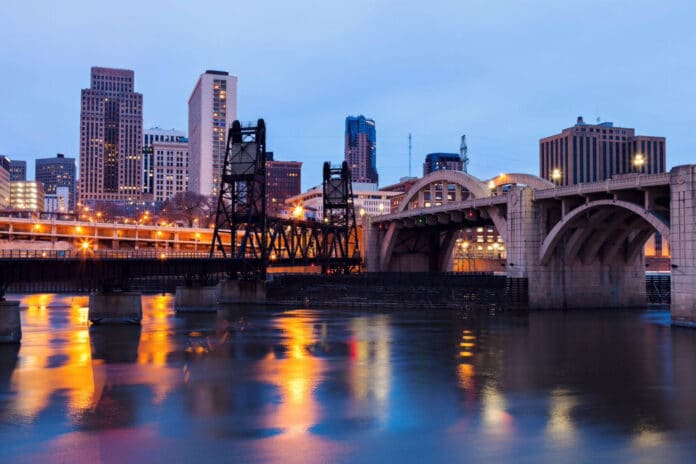
(The Center Square) — St. Paul residents approved a 20-year, 1% increase in the local sales and use tax to fund roads, bridges and parks.
On a 60% to 40% vote with nearly 29,000 people in favor, the tax increase will mark the highest city sales tax statewide at 9.8% starting April 1.
The city with a population of 307,000 says fixing roads and parks will cost $1 billion over 20 years. The tax increase will generate $738 million over 20 years to repair streets.
The proposed sales tax will not include food, clothing and other essential items.
The revenue collected over 20 years will provide $738 million for road projects, including 24 arterial and collector roads, including some bridges, over 44 miles in each of the seven wards.
It will provide $246 million for parks and recreation facilities improvements focusing on the worst-condition parks, community centers, trails, connections, and athletic facilities. Revenue will also fund a community center on the city’s East Side, an athletic complex for hosting local and regional tournaments, and a 1.5-mile River Balcony promenade.
The St. Paul Area Chamber said it surveyed its members and 77% opposed it.
“Last night, St. Paul voters said loud and clear that they want to see our city’s streets improved,” B Kyle, president and CEO of the St. Paul Area Chamber, said in a statement this week. “We agree that our infrastructure must be prioritized moving forward. While we’re concerned about the economic impact that this sales tax increase will have on St. Paul businesses, we recognize that it will provide city leadership resources to address a portion of our arterial streets.”
Kyle said they look forward to seeing the city’s plan to address street infrastructure for the remaining majority of the city.
“The chamber will continue to advocate for the prioritization of these core municipal services with the current and new city council,” Kyle said.
The sales tax revenue dedicated to complete streets will allow for reconstruction and regular rehabilitation of St. Paul’s arterial and collector street system.
Infrastructure improvements could include:
- Physical enhancements in the roadway, such as new concrete sidewalks and curbs, bridges, street pavement, drainage, utilities, streetscaping, lighting, traffic control, public EV chargers, and right-of-way acquisition
- Pedestrian and bicycle safety improvements, such as traffic calming, bump outs, visible crosswalks, ADA-accessible ramps, dedicated bike facilities, traffic control, and street lighting
- Transit coordination with other agencies, including mass transit and commercial freight
- Sustainable and reimagined green spaces, such as trees, landscaping and other public uses
















